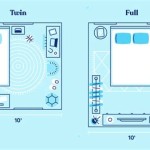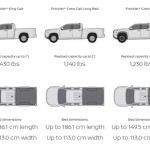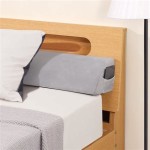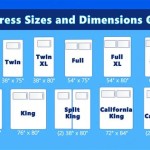Bariatric Hospital Bed Mattress Size: A Comprehensive Guide
Bariatric hospital beds are specifically designed to accommodate individuals with a higher body mass index (BMI). These beds offer enhanced weight capacity, increased width, and reinforced frames to ensure patient safety and comfort. A crucial component of a bariatric hospital bed is the mattress, which requires careful consideration regarding size, material, and functionality. This article provides a detailed overview of bariatric hospital bed mattress sizes, exploring the standard dimensions, factors influencing size selection, and the importance of choosing the correct mattress size for optimal patient care.
The primary goal of a bariatric hospital bed mattress is to provide adequate support and pressure redistribution for patients who may be at increased risk of pressure ulcers, skin breakdown, and discomfort. A correctly sized mattress is essential for maximizing these benefits and ensuring proper alignment and comfort. An inappropriately sized mattress can lead to inadequate support, increased risk of falls, and compromised patient safety.
Standard Bariatric Hospital Bed Mattress Dimensions
While standard hospital bed mattresses typically measure 36 inches in width and 80 inches in length, bariatric hospital bed mattresses are significantly wider to accommodate larger individuals. The most common width for a bariatric hospital bed mattress is 42 inches. However, mattresses are also available in widths of 48 inches, 54 inches, and even 60 inches to cater to varying patient needs. The length generally remains around 80 inches, but some specialized bariatric beds may offer extended lengths for taller individuals.
The specific dimensions of a bariatric hospital bed mattress are crucial and must be carefully considered during selection. Choosing the right size directly impacts the patient's comfort, safety, and the overall effectiveness of the bed's support system. A mattress that is too narrow may not provide adequate support for the patient's entire body, leading to pressure points and discomfort. Conversely, a mattress that is too wide may be cumbersome and difficult to maneuver in a hospital or home setting.
The thickness of a bariatric mattress is also an important factor. Typically, these mattresses range from 6 to 8 inches in thickness. Adequate thickness ensures sufficient cushioning and pressure redistribution, minimizing the risk of pressure sores. The material composition and construction of the mattress contribute significantly to its pressure-relieving capabilities.
It is crucial to measure the interior dimensions of the bariatric hospital bed frame before purchasing a mattress. This ensures a proper fit and prevents gaps between the mattress and the side rails, which could pose a safety hazard. A snug fit is essential for maximizing support and preventing the mattress from shifting during patient movement.
Factors Influencing Bariatric Hospital Bed Mattress Size Selection
Several factors influence the selection of the appropriate bariatric hospital bed mattress size. These factors primarily revolve around the patient's specific needs, physical dimensions, and medical conditions. Furthermore, the environment in which the bed will be used, whether it be a hospital, long-term care facility, or private residence, also plays a crucial role in determining the ideal mattress size.
Patient Weight and Size: The patient's weight is the most critical factor in determining the appropriate bariatric mattress size. Each mattress has a specific weight capacity, and exceeding this limit can compromise the mattress's structural integrity and its ability to provide adequate support. The patient's width and height also need to be considered to ensure that the mattress provides full body support without any overhang or areas of inadequate pressure relief. Documenting the patient's weight and measurements accurately is paramount before making a purchasing decision.
Patient Mobility and Condition: The patient's mobility and overall medical condition can significantly impact the choice of mattress size and type. For instance, a patient with limited mobility may require a mattress with advanced pressure redistribution features to prevent pressure ulcers. The size of the mattress should also allow for easy repositioning and transfers, facilitating caregiver assistance and minimizing the risk of injury. Patients with specific medical conditions, such as respiratory issues or edema, may benefit from adjustable bed frames and mattresses that allow for customized positioning.
Care Environment and Accessibility: The setting in which the bariatric bed will be used is another vital consideration. In a hospital or long-term care facility, space may be limited, and the dimensions of the room may restrict the size of the bed and mattress that can be accommodated. In a private residence, accessibility considerations, such as doorway widths and hallway sizes, may also influence the selection of the appropriate mattress size. It is essential to assess the physical environment thoroughly to ensure that the chosen mattress can be safely and effectively used.
Mattress Features and Functionality: The specific features and functionality of the mattress also play a role in determining the optimal size. Some bariatric mattresses offer advanced features such as integrated pressure redistribution, low air loss therapy, and adjustable firmness levels. These features can enhance patient comfort and reduce the risk of complications. The size of the mattress should complement these features, ensuring that they are effectively utilized across the entire surface area.
When selecting a bariatric hospital bed mattress, healthcare professionals should consult with the patient, caregivers, and other members of the healthcare team to gather comprehensive information and make an informed decision. A multidisciplinary approach ensures that the chosen mattress meets the patient's specific needs and promotes optimal health outcomes.
Importance of Choosing the Correct Mattress Size
Selecting the correct bariatric hospital bed mattress size is of paramount importance for patient safety, comfort, and overall well-being. An appropriately sized mattress provides optimal support and pressure redistribution, reducing the risk of pressure ulcers and other complications. Conversely, an incorrectly sized mattress can lead to a variety of adverse outcomes, compromising patient care and increasing healthcare costs.
Pressure Ulcer Prevention: Pressure ulcers, also known as bedsores, are a common and serious complication for individuals with limited mobility or who spend prolonged periods in bed. A correctly sized bariatric mattress with adequate pressure redistribution capabilities can significantly reduce the risk of pressure ulcers by evenly distributing the patient's weight and minimizing pressure on bony prominences. An inappropriately sized mattress may not provide sufficient support, leading to localized pressure points and increased risk of skin breakdown. Pressure ulcer prevention is a key priority in bariatric care, and choosing the right mattress size is a crucial step in achieving this goal.
Improved Patient Comfort: Comfort is an essential aspect of patient care, particularly for individuals who spend extended periods in bed. A correctly sized mattress provides adequate support and cushioning, allowing the patient to rest comfortably and reducing discomfort. An inappropriately sized mattress can lead to poor posture, muscle strain, and increased pain, negatively impacting the patient's quality of life. Prioritizing patient comfort can improve adherence to treatment plans and promote overall well-being.
Enhanced Patient Safety: Patient safety is a top priority in any healthcare setting. An appropriately sized bariatric mattress contributes to patient safety by providing a stable and supportive surface, reducing the risk of falls and injuries. A mattress that is too narrow or too short may not provide adequate support, increasing the risk of the patient rolling off the bed or experiencing other accidents. Ensuring that the mattress fits snugly within the bed frame and provides adequate side rail clearance is essential for preventing falls and promoting patient safety. Furthermore, choosing a mattress with appropriate weight capacity is crucial for maintaining its structural integrity and preventing collapse.
Caregiver Assistance and Efficiency: The right mattress size can also improve caregiver efficiency and reduce the risk of caregiver injury. A mattress that is properly sized allows for easier repositioning, transfers, and other care activities, minimizing the physical strain on caregivers. An inappropriately sized mattress can make these tasks more difficult and increase the risk of back injuries and other musculoskeletal problems. Providing caregivers with the appropriate equipment, including correctly sized mattresses, is essential for promoting their safety and well-being.
Long-Term Cost Savings: While purchasing a high-quality bariatric mattress may involve an initial investment, it can lead to long-term cost savings by preventing complications and improving patient outcomes. Pressure ulcers, falls, and other adverse events can result in significant healthcare costs, including hospital readmissions, wound care, and extended rehabilitation. By investing in the right mattress size and features, healthcare facilities can reduce the incidence of these complications and lower overall healthcare expenditures.
In conclusion, choosing the correct bariatric hospital bed mattress size is a critical decision that impacts patient safety, comfort, and overall well-being. By carefully considering the patient's weight, size, mobility, medical condition, and the care environment, healthcare professionals can select a mattress that provides optimal support, pressure redistribution, and comfort. Prioritizing the selection of the right mattress size is an essential component of comprehensive bariatric care.

Hospital Bed Mattress Sizes Listed Every Size

Bariatric Hospital Bed Mattress By Medmattress Com

Medacure Pressure Redistribution Bariatric Foam Hospital Bed Mattress Memory 80 X 48 6

Bariatric Beds Hospital For Plus Size Patients Arjo

Bariatric Hospital Beds 750 Lbs Capacity Transfer Master

Medacure Pressure Redistribution Bariatric Hospital Bed Mattress 3 Layer Memory Foam 80 X 42 6

Proheal Ultra Low Bariatric Full Electric Hospital Bed Package For Home Use Rails And Mattress Included 9 21 Inch Adjustable Height 750 Lbs

Drive Medical 600 Lbs Bariatric Full Electric Hospital Bed

Bariatric Electric Hospital Bed Mattress Ultra Low Expandable Width Height
Bariatric Pressureguard Easy Air Xl Hospital Bed Mattress For Long Term Care








